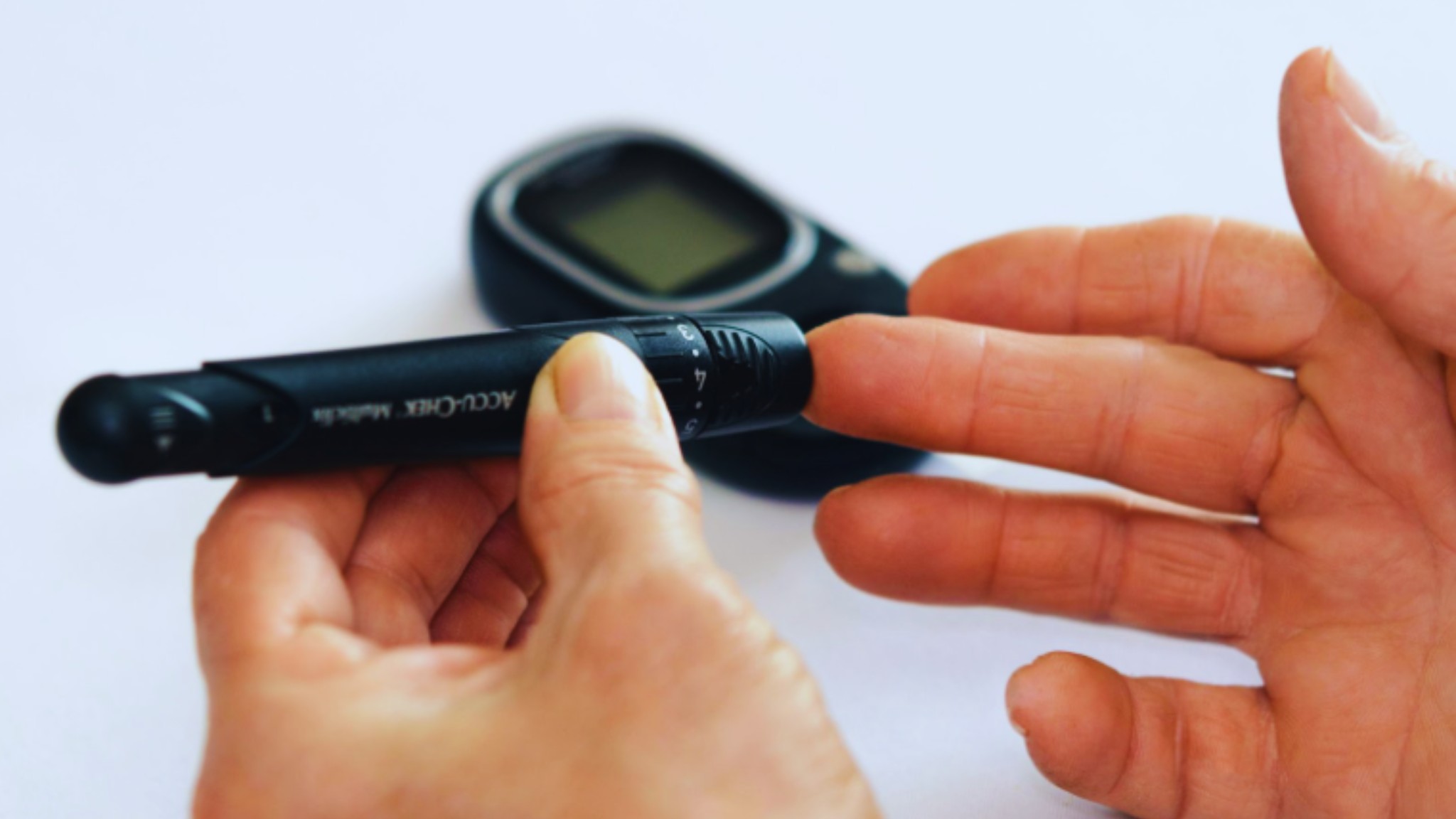Weight Loss
How Ozempic Aids Weight Loss
Table of Contents
Losing weight can be challenging, but new medications like Ozempic are making it easier for some people. Ozempic is a drug originally made for diabetes, but doctors discovered it also helps with weight loss. It works by controlling appetite and changing how the body uses food for energy. In this article, we’ll explore how Ozempic aids weight loss, what results to expect, and who might benefit from it. We’ll also compare it to other weight loss medications and discuss possible side effects.
What is Ozempic?
Ozempic is a prescription medication used to help people manage type 2 diabetes, a condition where the body has trouble controlling blood sugar levels. The main ingredient in Ozempic is called semaglutide. This medicine works by mimicking a natural hormone in your body that helps regulate blood sugar, hunger, and insulin production.
How Does Ozempic Work?
Semaglutide, the active ingredient in Ozempic, helps your body produce more insulin when your blood sugar levels are high. It also reduces the amount of sugar your liver makes and slows down the speed at which food leaves your stomach. Together, these effects help lower your blood sugar and improve your body’s ability to manage diabetes.
Why Was Ozempic Developed?
Ozempic was originally created to treat type 2 diabetes. It’s not a cure for diabetes, but it helps people with the condition control their blood sugar levels. Many people with type 2 diabetes struggle with high blood sugar, and Ozempic helps them stay on track with their treatment plan.
Uses Beyond Diabetes
Although Ozempic was first developed for diabetes, it has also been found to help with weight loss. Some people who take Ozempic notice that they feel less hungry, which can lead to them eating less and losing weight. Because of this, doctors may prescribe Ozempic for people with weight issues, especially if they also have type 2 diabetes or other health concerns.

The Science Behind How Ozempic Aids Weight Loss
One of the key ways semaglutide works is by affecting two important hormones: insulin and glucagon. Insulin helps the body use sugar for energy, while glucagon tells the body to release stored sugar when needed. Semaglutide helps your body use insulin more effectively, which can lower blood sugar levels. At the same time, it lowers the amount of glucagon in your system, helping to prevent the storage of extra fat.
Semaglutide also affects your appetite by working on your brain. It targets areas of the brain that control hunger and fullness. When these areas receive signals from Ozempic, they make you feel fuller faster, which means you’re less likely to overeat. This helps you eat less and makes it easier to maintain a healthy weight.
By regulating your blood sugar, controlling hunger, and preventing extra fat storage, Ozempic helps your body lose weight more effectively.
Ozempic’s Impact on Appetite and Metabolism
How Ozempic Suppresses Appetite
When you take Ozempic, it boosts GLP-1 levels, making you feel satisfied after eating smaller portions. As a result, you naturally eat fewer calories, leading to gradual weight loss.
In addition to reducing hunger, Ozempic also slows down how fast food leaves the stomach. This means that after a meal, you stay full longer, reducing the urge to snack throughout the day. By keeping cravings under control, Ozempic makes it easier for people to maintain a lower-calorie diet without feeling deprived.
The Effect of Ozempic on Metabolism
Metabolism is the process that helps your body turn food into energy. Many people struggling with weight loss have a slow metabolism, making it harder to burn calories efficiently. While Ozempic does not directly speed up metabolism, it does influence how the body processes sugar and fat.
- It lowers blood sugar levels, which prevents sudden spikes and crashes that can lead to hunger.
- It helps the body use insulin more effectively, reducing fat storage.
- It may encourage the body to burn stored fat for energy, especially when combined with a healthy diet and exercise.
Together, these effects contribute to steady and sustainable weight loss over time.
Ozempic Weight Loss Results: What to Expect
Most people begin to notice weight loss within a few weeks to a few months after starting Ozempic. The best results usually happen after six months to a year of consistent use. However, it is not a magic solution—healthy eating and regular physical activity can improve and maintain weight loss results.
What Affects Weight Loss with Ozempic?
Several factors can impact how well Ozempic works, including:
- Lifestyle Choices – A balanced diet and exercise help speed up weight loss.
- Dosage – Higher doses may lead to greater weight loss, but only a doctor can determine the right amount.
- Metabolism – Some people naturally lose weight faster than others.
Who is a Good Candidate for Ozempic Weight Loss?
While Ozempic was first made to help people with type 2 diabetes, it was later found to help reduce appetite and slow digestion—leading to weight loss. Because of this, some doctors now prescribe it for people who do not have diabetes but need help managing their weight. However, this is considered an off-label use, meaning it is not the primary purpose of the drug.
Who Can Use Ozempic for Weight Loss?
Doctors may prescribe Ozempic for weight loss to people who meet specific criteria. You may be a good candidate if:
- You have a body mass index (BMI) of 30 or higher (which is considered obesity).
- You have a BMI of 27 or higher and also have health conditions like high blood pressure or diabetes.
- You have struggled with losing weight through diet and exercise alone.
However, Ozempic is not for people with a history of certain medical conditions, such as thyroid cancer or severe digestive issues. Always talk to a doctor before considering this medication.
Common Side Effects and How to Manage Them
Many medications have side effects, and Ozempic is no exception. Some of the most common ones include:
1. Nausea
One of the most frequently reported side effects is nausea, which can make people feel sick to their stomach. This often happens when starting the medication or increasing the dose. To help manage nausea:
- Eat small, light meals and avoid greasy or spicy foods.
- Drink plenty of water to stay hydrated.
- Take the medication as directed, preferably with food if allowed by your doctor.
- Rest and avoid sudden movements, as these can make nausea worse.
2. Diarrhea
Some people may experience diarrhea, which can be uncomfortable and lead to dehydration. To manage this:
- Drink electrolyte-rich fluids, such as sports drinks or coconut water.
- Eat foods that help firm stools, like bananas, rice, and toast.
- Avoid dairy, caffeine, and very fatty foods, as these can make diarrhea worse.
3. Constipation
While some people experience diarrhea, others may have the opposite problem—constipation. If this happens:
- Eat fiber-rich foods like fruits, vegetables, and whole grains.
- Drink enough water throughout the day.
- Stay active by walking or doing light exercises to help digestion.
4. Stomach Pain
Abdominal pain or discomfort is another possible side effect. To ease this:
- Apply a warm compress to the stomach.
- Avoid foods that cause bloating, such as beans or carbonated drinks.
- Take deep breaths or try gentle stretches to relax the muscles.
5. Dizziness or Fatigue
Some people may feel dizzy or unusually tired. To reduce the risk:
- Stand up slowly from sitting or lying down.
- Get enough rest and avoid activities that require focus, such as driving, until you feel better.
- Eat balanced meals to maintain steady blood sugar levels.
Precautions and Who Should Avoid the Drug
While many people can safely take Ozempic or similar medications, some should avoid it due to potential risks.
1. People with Certain Medical Conditions
- Those with a history of thyroid cancer or a family history of thyroid disease should avoid this medication, as studies have shown a possible risk of thyroid tumors.
- People with severe stomach or digestive issues, such as gastroparesis (a condition that slows digestion), may find their symptoms worsening.
2. Pregnant or Breastfeeding Women
- The safety of Ozempic during pregnancy and breastfeeding is not well studied. Doctors usually recommend stopping the medication if planning to become pregnant.
3. People Taking Certain Medications
- Those on insulin or other blood sugar-lowering drugs should be cautious, as Ozempic can lower blood sugar too much, causing hypoglycemia.
- If you are taking other prescription medications, consult your doctor to check for interactions.
4. Anyone with Allergies to the Drug
- If you have had an allergic reaction to Ozempic or similar medications, you should avoid taking it.
Frequently Asked Questions
Losing weight is not always easy, and for some people, diet and exercise alone may not be enough. That’s why doctors sometimes prescribe medications to help. One popular option is Ozempic, but how does it compare to other weight loss medications like phentermine and liraglutide? Let’s take a closer look at how they work, their effectiveness, and their safety.
How These Medications Work
Ozempic (Semaglutide): This medication was originally made to treat diabetes, but it also helps people lose weight. It works by mimicking a natural hormone in the body called GLP-1, which helps control blood sugar and reduces appetite.
Phentermine: This is a stimulant that affects the brain to reduce hunger. It is usually prescribed for short-term use.
Liraglutide (Saxenda): Like Ozempic, liraglutide is also a GLP-1 medication that helps with weight loss by making people feel full longer and slowing digestion.
Can I Take Ozempic If I’m Not Diabetic?
Yes, Ozempic is FDA-approved for diabetes, but many doctors prescribe it off-label for weight loss. A higher-dose version, Wegovy (which contains the same active ingredient, semaglutide), is specifically approved for weight management in people without diabetes. However, it’s important to consult a doctor to determine if it’s the right option for you.
Which One Is Safer?
All medications have side effects, and it’s important to know them before choosing one.
Ozempic and Liraglutide: Because they work in similar ways, they have similar side effects. These may include nausea, vomiting, diarrhea, and stomach pain. In rare cases, they can increase the risk of pancreatitis (inflammation of the pancreas).
Phentermine: Since it is a stimulant, it can cause side effects like increased heart rate, high blood pressure, and trouble sleeping. It may also be addictive, which is why doctors don’t usually prescribe it for long-term use.
Which One Should You Choose?
The best weight loss medication depends on a person’s health and goals. If someone needs a quick boost to lose a small amount of weight, phentermine might help. But if they want long-term weight loss, Ozempic or liraglutide could be better. However, these medications can be expensive, and insurance may not always cover them.
Ozempic Aids Weight Loss: Final Thoughts
Ozempic weight loss can be helpful for people struggling with obesity, but it’s not a magic solution. A healthy diet and regular exercise are still important. Always talk to a doctor before starting Ozempic to see if it’s the right choice for you.If you’re considering purchasing Ozempic for weight loss, buying it online in Canada through a reputable source like Skinnypens.is is a great option. Skinnypens offers a secure and reliable platform to buy Ozempic online, making it convenient for those looking for weight loss solutions without the hassle of in-person visits. Buy here.

